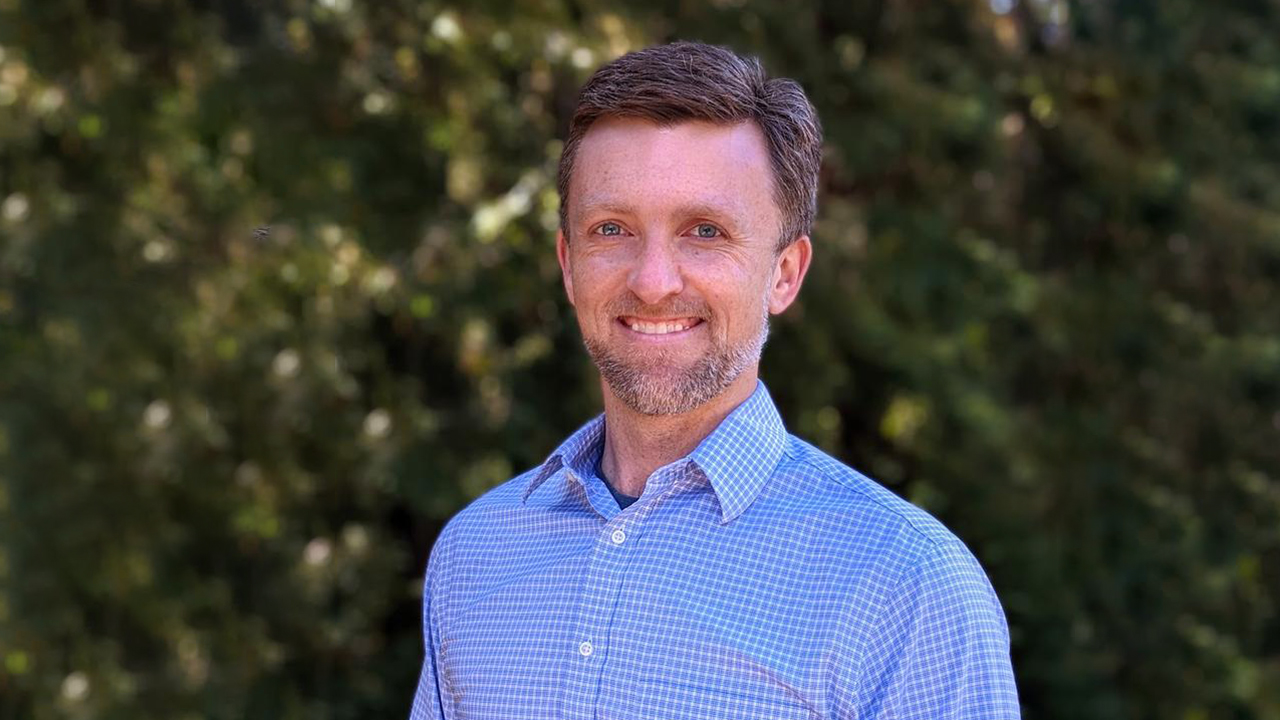
Ryan Kingsbury joins Princeton faculty to engineer better ion-selective membranes
By the Andlinger Center for Energy and the Environment
Ryan Kingsbury has joined the Princeton faculty as an assistant professor of civil and environmental engineering and the Andlinger Center for Energy and the Environment, effective July 1, 2023, strengthening Princeton’s research expertise in water purification and industrial decarbonization.
Kingsbury, an expert in environmental separations, brings with him a decade of experience spanning academia, industry, a national laboratory, and startups. His research is focused on understanding selective membranes, which act like high-tech filters that separate charged particles (ions) such as minerals or metals out of water mixtures. These ion-selective materials have wide-ranging energy and environmental applications. For example, some membranes are used to purify groundwater by removing salt. Others are used in energy devices like batteries, fuel cells, or electrolyzers to transport key ions like protons or lithium. However, in many cases, the poor performance or high cost of the membrane limits the economic feasibility of these devices.
“Ion-selective materials show up in almost every kind of electrochemical technology you can think of,” Kingsbury said. “If we can develop better ways of engineering them to lower costs and increase performance, they have strong potential to advance many emerging technologies for clean energy, water purification, and industrial waste recycling.”
At Princeton, Kingsbury hopes to develop what he refers to as a “recipe book” to tailor ion-selective materials for specific separation tasks. Today, making membranes to filter common minerals like table salt is relatively straightforward, but that technology cannot be easily adapted to new tasks, such as filtering valuable lithium out of industrial waste during battery recycling. By identifying the fundamental, molecular-scale principles that underpin their performance, Kingsbury plans to make it easier and faster to fine-tune new membranes for any separation problem, thereby accelerating development of the technologies that depend on them.
“We are thrilled to welcome Ryan to Princeton and to the Andlinger Center,” said Claire Gmachl, interim director of the Andlinger Center for Energy and the Environment and the Eugene Higgins Professor of Electrical Engineering. “His research naturally complements the work of many faculty at the School of Engineering and Applied Science working to solve the great challenge of decarbonizing heavy industry, and his experience working both in industry and at a national lab will be a wellspring for solutions-oriented research ideas.”
“In addition to his cutting-edge research, Ryan will greatly enrich the curriculum and educational programs at Princeton with his forefront expertise and unique professional experience,” said Branko Glisic, chair and former Director of Undergraduate Studies of the Department of Civil and Environmental Engineering. “We are delighted at the prospect of the new topics that he will cover, especially regarding the senior design capstone course for CEE majors, as well as advanced courses for a broader Princeton graduate cohort interested in understanding both the fundamental and implementation challenges of technologies related to clean water, energy, and industrial recycling.”
In developing his research program at Princeton, Kingsbury will draw from a background in both academia and industry. A licensed professional engineer, Kingsbury has worked to design and build water and wastewater treatment systems in the U.S. And in his research career, he has also endeavored to bring innovation into practice, shepherding from the lab into the startup world an energy storage technology based on saltwater that he invented.
“While I have a home base in water treatment, my research has applications that span much of the clean energy transition,” Kingsbury said. “It’s not just about better techniques for processes like water desalination, but about enabling new electrochemical technologies for applications such as advanced manufacturing, synthetic fuel production, and industrial waste recycling.”
Kingsbury received a Ph.D. and M.S. in environmental sciences and engineering from the University of North Carolina at Chapel Hill. He also holds a B.S. in civil engineering and a B.A. in Plan II liberal arts from the University of Texas at Austin. Prior to joining Princeton, Kingsbury was a postdoctoral researcher at the Lawrence Berkeley National Laboratory.